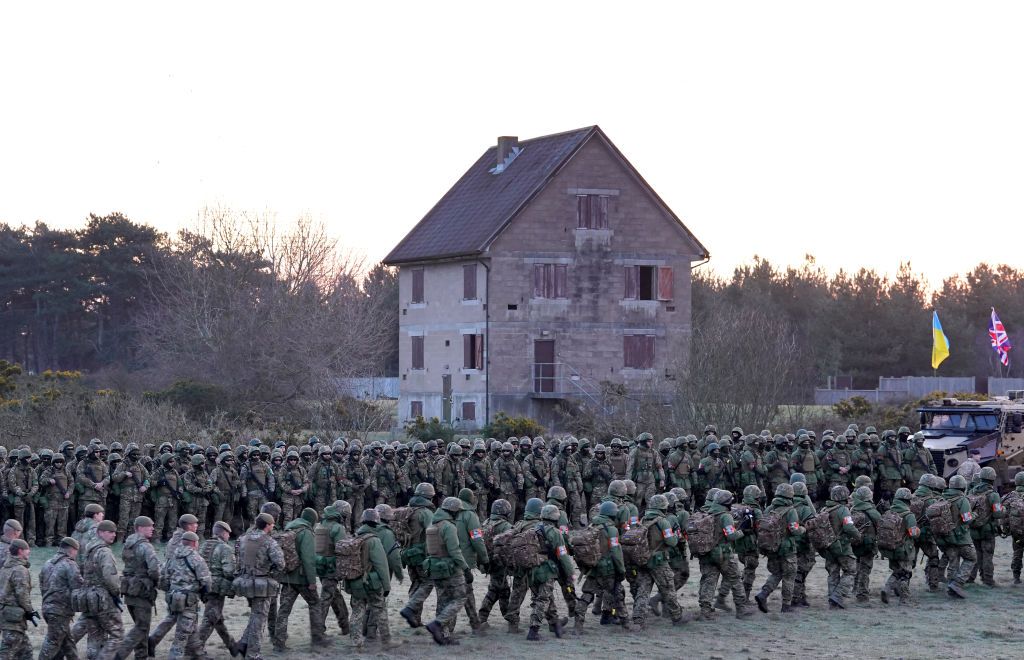Introduction to Ukraine’s Military Reforms and Challenges
Ukraine is currently undergoing significant military reforms aimed at enhancing its defense capabilities and operational efficiency. According to Deputy Head of the Presidential Office, Pavlo Palisa, Ukraine will no longer form new military brigades. Instead, the focus will shift to strengthening existing brigades, particularly those operating in combat zones. This strategic decision comes as Ukraine transitions from a brigade-level system to a corps system, a move that has been described as long overdue. The reform is expected to improve battlefield management, resource allocation, and overall military effectiveness. However, this transition also coincides with controversies surrounding the performance and treatment of soldiers within certain brigades, highlighting the need for accountability and better oversight within the Ukrainian Armed Forces.
Shift to Corps System: A Strategic Move for Modern Warfare
The transition to a corps system represents a significant shift in Ukraine’s military structure. This change is designed to address the challenges of modern warfare, where efficiency, coordination, and strategic command are critical. By moving away from the brigade-level system, Ukraine aims to create a more streamlined and centralized command structure, which will allow for better decision-making and resource utilization. Pavlo Palisa emphasized that this reform is not just a matter of time but a necessity for achieving greater effectiveness on the battlefield. The corps system is expected to facilitate more cohesive operations, enabling Ukrainian forces to respond more dynamically to enemy movements and changing circumstances on the front lines.
Training within existing brigades will continue, with a focus on addressing past shortcomings. This suggests that Ukrainian authorities are taking steps to learn from previous mistakes and adapt their strategies to the realities of the conflict. The emphasis on replenishing and reinforcing current brigades indicates a pragmatic approach, prioritizing quality over quantity and ensuring that troops are adequately prepared for the demands of combat.
Controversies and Challenges Within Ukrainian Brigades
Despite the strategic focus on reform, Ukraine’s military has faced criticism for lapses in discipline and leadership. Two brigades, in particular, have been at the center of controversies: the French-trained 155th "Anne of Kyiv" Brigade and the 211th Pontoon Bridge Brigade. Reports of abuse, extortion, and humiliation of soldiers by their commanders have sparked widespread outrage and raised questions about the overall accountability within the Ukrainian Armed Forces.
One of the most shocking incidents involved Senior Lieutenant Vladyslav Pastukh of the 211th Pontoon Bridge Brigade, who allegedly ordered subordinates to tie a soldier to a wooden cross, leaving him immobilized for four hours. Such allegations have cast a shadow over Ukraine’s military, highlighting the need for systemic reforms to address issues of discipline and human rights within the ranks. In response to these incidents, Defense Minister Rustem Umerov ordered an investigation in December 2023, signaling a commitment to addressing these problems and maintaining the integrity of the military.
New Technologies: Deployment of High-Speed Baton Drones
Amid the ongoing reforms and challenges, Ukraine has approved the deployment of high-speed Baton drones for battlefield use. These drones are specifically designed to meet military requirements for simplicity and reliability in difficult conditions. The introduction of this technology underscores Ukraine’s efforts to modernize its armed forces and leverage advanced tools to gain an edge in combat. Drones like the Baton system can play a critical role in reconnaissance, surveillance, and targeting, enabling Ukrainian forces to gather real-time intelligence and conduct operations with greater precision.
The deployment of these drones also reflects Ukraine’s broader strategy of integrating technology into its military operations. By adopting cutting-edge systems, Ukraine aims to enhance its capabilities and counterbalance the advantages enjoyed by its adversaries. The use of drones is particularly significant in modern warfare, as they provide a cost-effective and versatile means of conducting operations without exposing troops to unnecessary risks.
Appointment of a Military Ombudsman: A Step Toward Accountability
In an effort to address the controversies and ensure better treatment of soldiers, Ukrainian President Volodymyr Zelensky appointed a military ombudsman. This move is aimed at improving oversight and ensuring that conditions within the Armed Forces meet acceptable standards. The ombudsman will play a crucial role in investigating complaints, monitoring troop welfare, and advocating for the rights of service members. This appointment is a positive step toward fostering transparency and accountability within the military, which are essential for maintaining morale and public trust.
The establishment of this position also signals a recognition of the need for systemic change. By addressing the root causes of abuse and misconduct, Ukraine can work toward creating a more professional and disciplined military force. This, in turn, will contribute to greater cohesion and effectiveness on the battlefield, which are vital as Ukraine continues to face significant challenges in its ongoing conflict.
Conclusion: Ukraine’s Military Reforms and the Path Ahead
Ukraine’s decision to transition to a corps system, focus on strengthening existing brigades, and introduce advanced technologies like the Baton drones demonstrates acommitment to modernizing its military and addressing past shortcomings. However, the path ahead will require continued attention to issues of accountability, discipline, and troop welfare. The appointment of a military ombudsman is a positive step in this direction, but sustained efforts will be necessary to ensure that reforms are implemented effectively.
As Ukraine continues to navigate the complexities of its conflict, the success of these reforms will be critical in determining its ability to achieve strategic objectives. By prioritizing efficiency, accountability, and innovation, Ukraine can build a more resilient and effective military force capable of meeting the challenges of modern warfare. The journey ahead will undoubtedly be fraught with difficulties, but with a clear vision and a commitment to improvement, Ukraine’s Armed Forces can emerge stronger and more prepared for the future.












